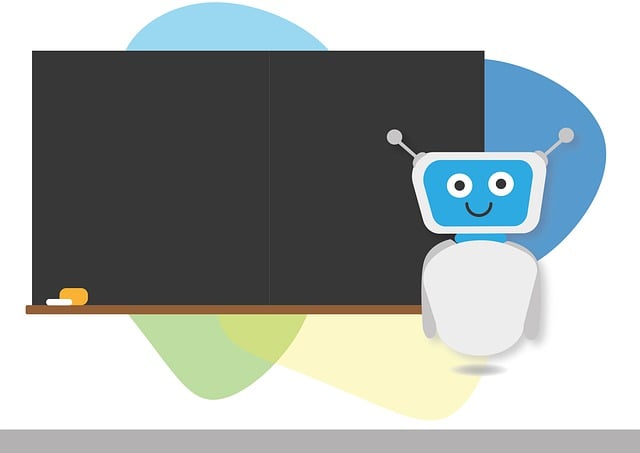AI chatbots, powered by NLP and machine learning, have transformed human-computer interaction by providing 24/7 personalized support and automation across various digital platforms. These virtual assistants handle diverse tasks with increasing accuracy, understanding complex queries, maintaining context, and displaying empathy. Their seamless integration enhances user satisfaction, efficiency, and engagement, while also offering businesses a cost-effective way to manage high volumes of queries simultaneously. Despite ongoing challenges like nuanced language understanding, future prospects include adaptive machine learning for enhanced user experiences and improved customer service across industries. Responsible development, guided by ethical considerations and data privacy measures, will ensure AI chatbots' positive impact on tech communication.
Conversational AI is transforming tech communication, revolutionizing how businesses interact with customers. This article delves into the rising popularity of AI chatbots and their profound impact on user experiences. We explore the power these tools hold in simplifying complex tasks, providing 24/7 support, and offering personalized interactions. From understanding conversational AI fundamentals to navigating challenges and peering into future prospects, this guide highlights key benefits and offers insights for effective implementation.
- Understanding Conversational AI and its Rise
- The Power of AI Chatbots in Tech Communication
- Enhancing User Experience with Seamless Interactions
- Key Benefits of Implementing AI-Driven Conversations
- Navigating Challenges and Future Prospects of Conversational AI
Understanding Conversational AI and its Rise

Conversational AI, often in the form of AI chatbots, has emerged as a transformative technology in recent years. This innovative approach to human-computer interaction leverages natural language processing (NLP) and machine learning algorithms to enable machines to understand and respond to human language in a conversational manner. The rise of Conversational AI can be attributed to several factors: the increasing demand for personalized customer experiences, advancements in NLP, and the ubiquity of digital devices.
AI chatbots are now integrated into various platforms, from websites and messaging apps to voice assistants on smartphones, offering users quick and efficient support, information retrieval, and task automation. As these technologies continue to evolve, they are becoming more sophisticated, capable of handling complex queries, maintaining context in conversations, and even displaying empathy, thereby enhancing user satisfaction and fostering stronger relationships between humans and machines.
The Power of AI Chatbots in Tech Communication

AI chatbots are transforming tech communication by offering round-the-clock availability and personalized interactions. They can handle a wide range of tasks, from answering frequently asked questions to assisting with complex troubleshooting, ensuring users receive prompt and accurate support. The ability to understand natural language inputs makes these chatbots accessible to a diverse audience, regardless of technical expertise.
These virtual assistants leverage advanced machine learning algorithms to continuously learn and improve their responses. As tech communication evolves, so does the capability of AI chatbots, enabling them to adapt to new information and user preferences. Their integration into various platforms enhances usability, creates seamless experiences, and ultimately fosters stronger user engagement and satisfaction.
Enhancing User Experience with Seamless Interactions

Conversational AI, particularly AI chatbots, are transforming the way users interact with technology, resulting in a significant enhancement to overall user experience. By mimicking natural human conversation, these intelligent assistants offer a seamless and intuitive interface that makes accessing information and completing tasks more efficient and enjoyable.
AI chatbots excel at understanding user queries and providing relevant responses quickly. This eliminates frustrating navigation menus and complex syntax, replacing them with simple, conversational language. The ability to learn from interactions further personalizes the experience, adapting to individual preferences and needs over time. As a result, users can accomplish more in less time, fostering satisfaction and loyalty towards the technology they use.
Key Benefits of Implementing AI-Driven Conversations

Implementing AI-driven conversations, such as those facilitated by an AI chatbot, offers a multitude of benefits for businesses and users alike. One of the key advantages is enhanced efficiency. These intelligent chatbots can handle a high volume of queries simultaneously, reducing response times significantly. They provide instant support, ensuring that customers or employees no longer face lengthy waiting periods for simple questions to be answered.
Moreover, AI conversations allow for personalized interactions. By leveraging machine learning algorithms, these chatbots can remember user preferences and tailor their responses accordingly. This level of customization improves the overall user experience, fostering a sense of satisfaction and loyalty. It also enables businesses to gather valuable insights from customer interactions, using data analytics to refine and improve services over time.
Navigating Challenges and Future Prospects of Conversational AI

Conversational AI, particularly in the form of AI chatbots, is transforming tech communication by offering intuitive, personalized interactions. However, navigating challenges like understanding nuanced human language and maintaining context over extended conversations remains crucial for seamless user experiences. Advanced natural language processing (NLP) techniques are addressing these issues, enabling ai chatbots to interpret complex queries more accurately.
Looking ahead, the future of Conversational AI holds immense potential. Integrating machine learning capabilities will further enhance these systems’ ability to learn from interactions and adapt to individual users. This evolution promises improved customer service across industries, from healthcare to finance, where personalized, 24/7 support is increasingly essential. Additionally, ethical considerations and robust data privacy measures will shape the responsible development and deployment of AI chatbots, ensuring their beneficial impact on tech communication.






